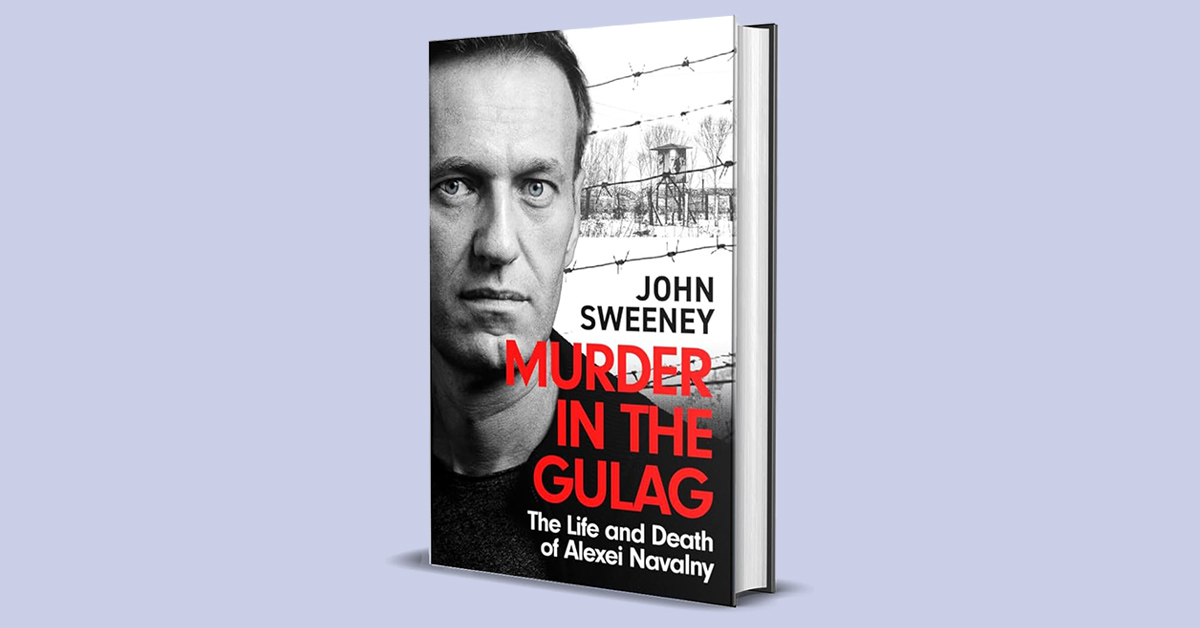
John Sweeney, Murder in the Gulag: The Life and Death of Alexei Navalny (London: Headline, 2024).
Reviewed by Craig G. Bartholomew.
In February 2024 I wrote about the tragic death of Alexei Navalny (1976-16 February 2024) and described him as “another Russian Christian martyr.” The UK journalist John Sweeney has just published this book about Navalny’s life and death. It is fascinating and important.
Three threads run through Sweeney’s book: ongoing appeasement of Putin by the West, the death of democratic Russia, and the murder of Navalny, whom Sweeney describes as a flawed Russian hero.
Sweeney traces the impact of the Chernobyl explosion and its coverup on Navalny who had family living nearby in Zalyssia, with whom he regularly spent the summer as a young boy. “Chernobyl scarred Navalny like Voldemort scarred Harry Potter, the scar ran so deep he could never root it out. From the age of ten, Navalny saw how a state that lied to its people was a thing of evil, that, in politics, in power, you must tell the truth to the people” (23). If you need a reminder of the darkness of Putin’s Russia with its violence and corruption, Sweeney’s book will do it for you. It reminds us what Ukraine is up against as well as Putin’s imperialist ambitions.
Sweeney locates Navalny’s flaw in his flirtation with the right as he sought out a way to oppose Putin effectively. Sweeney’s tracking of Navalny’s development to a healthier and mature position is helpful. Navalny’s courage is extraordinary. Typical of Putin’s Russia we do not know exactly how Navalny died. He was unjustly imprisoned in brutal conditions which took its toll on him. Sweeney opts for the view that he was poisoned.
What I miss in this book is any detailed discussion of Navalny’s Christian faith. In the final chapter Sweeney has a long quote from Ilya Yushin, then imprisoned but very recently part of the swap for Russian prisoners, a group which included Vladimir Kara-Murza. Yushin compares Putin’s hypocritical profession of Christian faith with that of Navalny:
“I can attest that he [Navalny] truly was a man of faith, for whom the commandments ‘Thou shalt not kill’ and ‘Thou shalt not steal’, and the ethical precepts of the Sermon on the Mount, were not the mere trappings of religion, but became a lodestar for his life and his politics.” (287; italics added)
As I wrote earlier this year, in February 2021 many were surprised when Navalny quoted the Bible at the end of his testimony in court. The now-defunct human rights group, Moscow Helsinki Group, reported the following from Navalny:
“If you want I’ll talk to you about God and salvation. I’ll turn up the volume of heartbreak to the maximum, so to speak. The fact is that I am a Christian, which usually rather sets me up as an example for constant ridicule in the Anti-Corruption Foundation, because mostly our people are atheists and I was once quite a militant atheist myself … But now I am a believer, and that helps me a lot in my activities, because everything becomes much, much easier. I think about things less. There are fewer dilemmas in my life, because there is a book in which, in general, it is more or less clearly written what action to take in every situation. It’s not always easy to follow this book, of course, but I am actually trying. And so, as I said, it’s easier for me, probably, than for many others, to engage in politics.”
Sweeney is an exceptionally courageous journalist. However, his formation is Western and Westerners struggle to take religion seriously. My hope is that future books on Navalny will explore his Christian faith in detail. We owe it to Alexei.